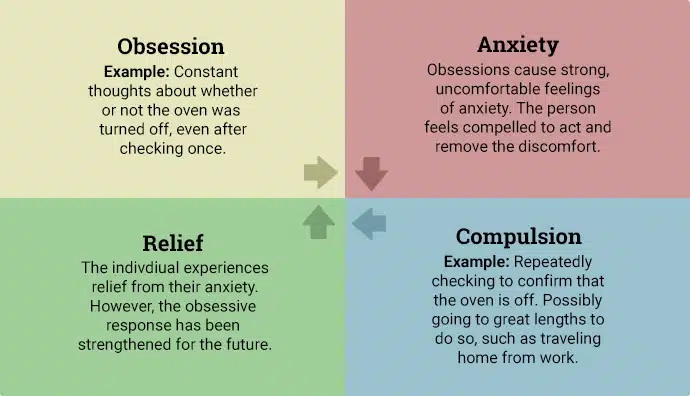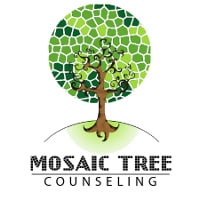Obsessive Compulsive Disorder (OCD)
Obsessive Compulsive Disorder also called OCD, are excessive thoughts (obsessions) that lead to repetitive behaviors (compulsions). Treatment can help but this condition cannot be cured. OCD often centers on themes such as a fear of germs or the need to arrange objects in a specific manner. Symptoms usually begin gradually and vary throughout life. Treatment includes talk therapy, medications, or both. OCD requires a medical diagnosis and often centers on themes such as a fear of germs or the need to arrange objects in a specific manner. Symptoms usually begin gradually and vary throughout life (Pittenger, 2017).

People may experience compulsive behavior, agitation, compulsive hoarding, hypervigilance, impulsivity, meaningless repetition of own words, repetitive movements, ritualistic behavior, social isolation, or persistent repetition of words or actions including anxiety, apprehension, guilt, or panic attack. Psychological symptoms include depression, fear, or repeatedly going over thoughts. Food aversion and nightmares are also common.
Treatment includes medication such as selective serotonin reuptake Inhibitor (SSRI)’s, anxiolytic, and antidepressants. Therapies that we may use include support group, cognitive behavioral therapy, aversion therapy, psychoeducation, rational emotive behavior therapy, exposure and response prevention, psychotherapy, systematic desensitization, and group therapy (Soomro, Altman, Rajagopal, Oakley-Browne, 2008).
Pittenger, C. (2017). Obsessive-compulsive disorder: Phenomenology, pathophysiology, and treatment. New York, NY: Oxford University Press.
Soomro GM, Altman D, Rajagopal S, Oakley-Browne M. Selective serotonin re-uptake inhibitors (SSRIs) versus placebo for obsessive compulsive disorder (OCD). Cochrane Database Syst Rev 2008; (1): CD001765. [PubMed]
Therapy Modalities
Abuse & Neglect
ADHD
Anxiety
Bipolar
Career Counseling
Communication Difficulties
Couples Therapy
Depression
Eating Disorders
Employee Assistance
Impulsive Behavior
Obsessive Compulsive Disorder (OCD)
Oppositional Defiant Disorder (ODD)
Play Therapy
Posttraumatic Stress Disorder (PTSD)
Self Esteem
Self Mutilation
Shop
Social Skills
Request More Information

